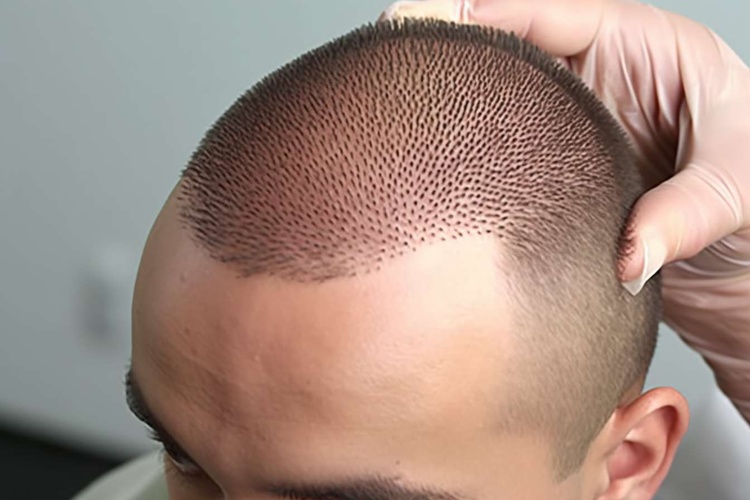Understanding Scalp Psoriasis: Key Signs That Indicate a Potential Problem
Scalp psoriasis is a chronic skin condition that causes red, scaly patches on the scalp, leading to discomfort and itching. While it’s not contagious, it can significantly affect quality of life if left unmanaged. Early recognition of the symptoms and understanding how to care for the scalp can help reduce flare-ups and improve overall scalp health. Knowing the key signs is essential for timely treatment and relief.

What are the typical symptoms of scalp psoriasis?
Scalp psoriasis presents with several distinct symptoms that set it apart from other scalp conditions. The most common signs include:
-
Red, inflamed patches on the scalp
-
Silvery-white scales that may shed and fall onto clothing
-
Intense itching, which can be severe and persistent
-
Dry, cracked skin that may bleed when scratched
-
Hair loss in severe cases, though usually temporary
These symptoms can vary in intensity and may extend beyond the hairline to the forehead, back of the neck, or behind the ears. Some individuals may experience mild scaling, while others might have thick, crusted plaques covering large areas of the scalp.
How does scalp psoriasis differ from other common scalp conditions?
Distinguishing scalp psoriasis from other scalp conditions is essential for proper treatment. Unlike dandruff, which causes small, white flakes and mild itching, scalp psoriasis produces thicker, silvery scales and more intense itching. Seborrheic dermatitis, another common scalp condition, typically causes yellowish, greasy scales and redness but lacks the defined, raised plaques characteristic of psoriasis.
Scalp psoriasis also differs in its chronic nature and potential to affect other areas of the body. While conditions like dandruff can often be managed with over-the-counter shampoos, scalp psoriasis usually requires more targeted treatment approaches prescribed by a dermatologist.
Why is it important to monitor itching and inflammation in scalp psoriasis?
Monitoring itching and inflammation is crucial in managing scalp psoriasis for several reasons:
-
Indicator of flare-ups: Increased itching and inflammation often signal the onset or worsening of a psoriasis flare-up, allowing for timely intervention.
-
Prevention of secondary infections: Scratching can lead to open wounds, increasing the risk of bacterial infections that may exacerbate the condition.
-
Assessing treatment efficacy: Changes in itching and inflammation levels can help determine whether current treatments are effective or if adjustments are needed.
-
Quality of life impact: Persistent itching and visible inflammation can significantly affect sleep, concentration, and overall well-being, making it important to address these symptoms promptly.
-
Preventing the Koebner phenomenon: Excessive scratching can trigger new psoriasis plaques in previously unaffected areas, a response known as the Koebner phenomenon.
By closely monitoring these symptoms, individuals with scalp psoriasis can work with their healthcare providers to maintain better control over the condition and improve their quality of life.
How can scalp psoriasis impact daily life and self-esteem?
Scalp psoriasis can have a profound impact on an individual’s daily life and self-esteem:
-
Social anxiety: Visible flaking and redness can lead to self-consciousness in social situations.
-
Wardrobe limitations: Many people with scalp psoriasis avoid dark-colored clothing due to noticeable flaking.
-
Hair care challenges: The condition can make regular hair care routines difficult and potentially painful.
-
Workplace concerns: Visible symptoms may lead to misconceptions about hygiene or contagiousness in professional settings.
-
Emotional distress: The chronic nature of psoriasis can lead to feelings of frustration, depression, and low self-esteem.
-
Sleep disturbances: Itching and discomfort can interfere with sleep quality, affecting overall health and well-being.
-
Relationship difficulties: The condition may impact intimate relationships due to self-consciousness or misunderstandings about the nature of psoriasis.
Addressing these psychological and social impacts is an important aspect of comprehensive scalp psoriasis management.
What treatment options are available to manage scalp psoriasis effectively?
Effective management of scalp psoriasis often involves a combination of treatments tailored to the individual’s needs:
-
Topical treatments:
-
Corticosteroid creams or ointments to reduce inflammation
-
Vitamin D analogues to slow skin cell growth
-
Coal tar products to reduce scaling and itching
-
-
Medicated shampoos:
- Containing ingredients like salicylic acid, coal tar, or ketoconazole
-
Systemic medications:
- Oral or injectable drugs for severe cases, such as methotrexate or biologics
-
Light therapy:
- Controlled exposure to UVB light to slow skin cell turnover
-
Lifestyle modifications:
-
Stress reduction techniques
-
Dietary changes to identify potential trigger foods
-
-
Scalp care practices:
-
Gentle hair washing and styling techniques
-
Use of moisturizing treatments to reduce dryness and scaling
-
When considering treatment options, it’s essential to consult with a dermatologist to develop a personalized plan that addresses individual symptoms and concerns.
| Treatment Type | Provider/Product | Cost Estimation |
|---|---|---|
| Topical Corticosteroid | Clobetasol (generic) | $30-$60 per tube |
| Medicated Shampoo | Neutrogena T/Gel | $10-$15 per bottle |
| Systemic Medication | Humira (adalimumab) | $5,000-$7,000 per month |
| Light Therapy | In-office UVB treatment | $50-$100 per session |
| Over-the-Counter | MG217 Psoriasis Treatment | $15-$20 per bottle |
Prices, rates, or cost estimates mentioned in this article are based on the latest available information but may change over time. Independent research is advised before making financial decisions.
In conclusion, understanding the key signs of scalp psoriasis is crucial for early detection and effective management. By recognizing symptoms, differentiating from other scalp conditions, and exploring various treatment options, individuals can take proactive steps to control their scalp psoriasis and improve their overall quality of life. Regular consultation with a dermatologist and adherence to a tailored treatment plan are essential components of successful scalp psoriasis management.
This article is for informational purposes only and should not be considered medical advice. Please consult a qualified healthcare professional for personalized guidance and treatment.




